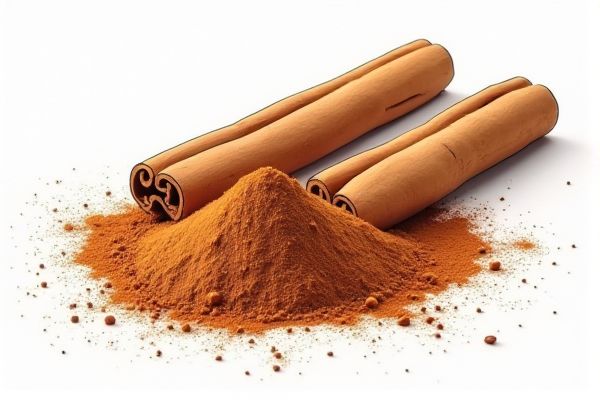Miso, a fermented soybean paste, is a staple in many kitchens around the world, cherished for its rich umami flavor and versatility in culinary creations. With numerous brands available, choosing the best miso for your cooking needs can be overwhelming. From traditional Japanese staples to modern, innovative producers, each brand offers its unique taste profile and quality. In this article, we explore some of the best miso brands that stand out for their authenticity, flavor, and craftsmanship, inviting you to discover the options below.

Illustration of miso
Best brands of miso in 2025
Hikari Miso
Hikari Miso is a leading producer of high-quality miso, renowned for its traditional Shinshu-style miso made from organic rice and soybeans. Founded in 1936 in Nagano Prefecture, Japan, Hikari Miso is the number one maker of certified organic miso globally, holding certifications from the USDA and EU standards. The company is known for its meticulous production process, including the use of premium ingredients like Koshihikari rice and Toyoharuka soybeans, and a long fermentation and aging process. Hikari Miso, along with Miyasaka Jozo Co., Ltd, and Marukome, dominated the miso market in 2022 with a combined market share of 67.81%. Their products are available worldwide, including in the U.S., U.K., Canada, Europe, and the Middle East. For more details, visit their official website.
Marukome
Marukome is a renowned brand in the miso industry, boasting a rich history that dates back to 1854 when Tamiemon Aoki founded the company in Japan's Nagano Prefecture. Known for its high-quality miso products, Marukome uses 30,000 tons of non-GMO soybeans annually and operates state-of-the-art factories in both Japan and the United States. The company achieved its number one spot in Japan with the release of Ryotei-no-Aji, Japan's first miso paste containing dashi, in 1982. Marukome USA was established in 2007 to expand its global presence, and the brand continues to uphold the highest standards in quality and flavor profiles. With a turnover of approximately 46.99 billion yen (around 469.9 million USD) as of 2020, Marukome remains a leading player in the global miso market. For more details, visit their official website.
Miyasaka Jozo
Miyasaka Jozo Co. Ltd., founded in 1662, is a renowned producer of high-quality miso, leveraging its centuries-old expertise to create premium products. The company, which began producing miso in 1916, is known for its strict quality control and traceability, ensuring the safety and quality of its ingredients, including soybeans imported from the United States and Canada, and Japanese rice inspected by the Japanese government. Miyasaka Jozo's commitment to quality has made it a leading brand in the miso market, which was valued at USD 393 million in 2023 and is expected to grow significantly. The company's products, such as Shinsyu-ichi Miso under the Miko Brand, are distributed globally, reflecting its mission to introduce traditional Japanese cuisine worldwide. With a rich history and advanced production techniques, Miyasaka Jozo continues to be a major player in the expanding miso market.
Edo-Murasaki
Edo-Murasaki is renowned as one of the top miso producers in Japan, particularly celebrated for its high-quality Sendai red miso and Edo sweet red miso varieties. Since its establishment, the brand has maintained a strong presence in the market, with miso production dating back to the 1600s in the capital city of Edo. The brand's miso is made using traditional methods, incorporating barley or rice koji to achieve a diverse range of flavors. In 2021, Japan's miso production volume totaled 462 thousand metric tons, with brands like Edo-Murasaki contributing significantly to this figure. The brand's commitment to traditional techniques and quality ingredients has made it a staple in Japanese cuisine. For more information about miso production, visit Soy Info Center.
Mitoku
Mitoku is renowned as one of the best producers of miso, specializing in traditional recipes and techniques that ensure high-quality products. Their miso range is made with organic ingredients and includes varieties like brown rice miso, barley miso, and Hatcho miso, each distinguished by its unique flavor and nutritional benefits. The fermentation process, which can last from three months to three years, enhances the aroma, flavor, and nutritional value of the miso. Mitoku's products are free from GMO and chemical additives, making them a favorite among health-conscious consumers. The company's commitment to traditional methods and high-quality ingredients sets it apart in the global miso market, which is expected to grow at a CAGR of 4.7% from 2022 to 2032.
Hanamaruki
Hanamaruki Foods, established in 1918, is a leading producer of miso in Japan, holding the second largest market share in the country. The company is renowned for its high-quality miso products, with a significant presence in the Japanese market, particularly in Nagano prefecture. In 2018, Hanamaruki held a 12% market share among top miso producers in Japan. Their innovative products, such as Liquid Shio Koji, have expanded their offerings beyond traditional miso. Hanamaruki's commitment to quality and innovation has made it a trusted name in Japanese cuisine.
Amano Foods
Amano Foods, a renowned Japanese company, has established itself as a leading producer of high-quality miso products, particularly notable for its freeze-dried miso soup. Since its first attempts at freeze-drying in 1968, Amano has specialized in preserving the intricate flavors of miso, with the first block-type miso soup introduced in 1982. The company boasts a significant 65% share of the block miso soup market and operates 19 advanced freeze-drying machines. Amano's commitment to quality ensures that ingredients return to their original condition within 10 seconds of adding hot water. With a turnover of Y=20.3 billion in fiscal 2013 and 707 employees, Amano continues to set industry benchmarks.
Cold Mountain
Cold Mountain Miso is renowned for its high-quality, authentic Japanese miso products, made from certified Organic soybeans, Non-GMO rice, and sea salt. This brand has been a staple in supplying Japanese restaurants across the USA with bulk sizes of their miso and sauces. Originating from a tradition that dates back over 2,000 years, Cold Mountain Miso brings the nutritional benefits of fermented soybeans to modern cuisine. Their products are free from preservatives and unpasteurized, containing isoflavones that add to their nutritional value. As a trusted supplier, Cold Mountain Miso has become an essential element in America's evolving health-conscious food scene.
Tetsujin
Tetsujin is a renowned brand in the miso market, known for its high-quality, organic, and vegan-friendly miso paste. Their white miso paste, in particular, is made from organic soy beans, organic rice, and salt, catering to the growing demand for GMO-free and kosher products. With a serving size of 100g and 100 servings per container, Tetsujin's miso paste is a popular choice among health-conscious consumers. The brand's commitment to diversity is also highlighted by its status as a minority-owned business. As the miso market continues to grow, driven by increasing health awareness and the adoption of Asian cuisine in Western markets, Tetsujin remains a significant player.
Clearspring
Clearspring is renowned as one of the best producers of miso, adhering to traditional and slow fermentation methods that enhance the flavor and nutritional benefits of their products. Their miso is made from organically grown ingredients, including whole soya beans and cereal grains, and is fermented in cedarwood kegs over several months, resulting in a rich and complex flavor profile. The company's founder, Christopher Dawson, spent 18 years in Japan mastering miso quality, ensuring Clearspring's range includes the finest traditionally made Japanese miso. Clearspring's organic miso contains no genetically modified ingredients and is certified non-GM, with varieties such as the brown rice miso offering a balanced taste and high nutritional value. The fermentation process involves enzymes from koji, naturally occurring yeasts, and bacteria, breaking down complex grains and beans into readily digestible amino acids, fatty acids, and simple sugars.
















Leave a Reply
Your email address will not be published.